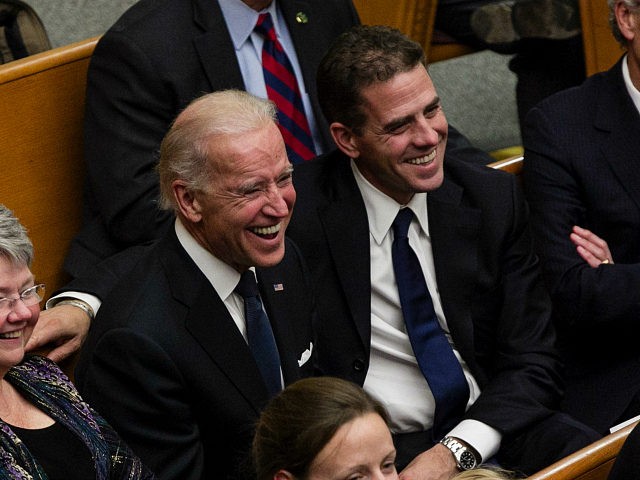The Washington Post published an op-ed Saturday advising readers: “We must treat the Hunter Biden leaks as if they were a foreign intelligence operation — even if they probably aren’t.”
The rationale for this argument, by Johns Hopkins Professor Thomas Rid, was that Russian interference in 2016 — through the hacking of the Democratic National Committee (DNC) email server, blamed by intelligence agencies on Russia — provided damaging information about the inner workings of the party (specifically, how it prevented socialist Sen. Bernie Sanders of Vermont from winning the nomination.)
Therefore any unexpected information — even if true — that could affect voters’ choice in 2020 must be treated with suspicion.
Rid may have revealed more than he intended about how the hivemind of the Beltway sprang into action to suppress the story:
[O]n Oct. 14, files purportedly from the mysterious laptop spilled into public view in the New York Post. My Signal messaging app immediately lit up with keen observers suspecting that this was finally it: the long-expected Russian hack-and-leak operation, a rerun of 2016, surfaced via a computer repair shop and the Post, in lieu of Guccifer 2.0 and WikiLeaks.
“Signal” is an app that allows users to send encrypted messages, and it is known to be used by government employees to share and leak information. Rid’s account of observers “suspecting” that they were seeing something “long-awaited” suggests confirmation bias — defined as “[t]he tendency to interpret new evidence as confirmation of one’s existing beliefs or theories.”
At one point, Rid actually claimed that “the Trump campaign had long signaled that it was receptive to receiving hacked materials, whatever the sourcing.” He linked to an article in the Daily Beast — an anti-Trump publication — about Trump’s joke at a July 2016 press conference about Russia finding Hillary Clinton’s missing emails.
Rid allowed that there is no evidence of Russian involvement — and argued that if Russia had been involved, it would have produced information that “would have actual political impact, instead of the unremarkable material revealed in the Post so far.”
In other words, Rid invoked the media’s deliberate suppression of the story, partly a result of unfounded suspicions about “Russia,” to suggest that perhaps Russia was not to blame after all.
Rid closed by warning against assuming Russia was involved, adding that “there are good reasons to be skeptical of the theory that the laptop is a foreign plot.”
At no point in the article did Rid discuss the substance of the emails revealed by the New York Post, other than to say that they accused Joe Biden of “corruption in Ukraine.”
He did not mention other emails on the laptop connecting the Bidens to a business proposal with a private Chinese company — one corroborated by would-be partner Tony Bobulinksi last week.
Joel B. Pollak is Senior Editor-at-Large at Breitbart News and the host of Breitbart News Sunday on Sirius XM Patriot on Sunday evenings from 7 p.m. to 10 p.m. ET (4 p.m. to 7 p.m. PT). His newest e-book is The Trumpian Virtues: The Lessons and Legacy of Donald Trump’s Presidency. His recent book, RED NOVEMBER, tells the story of the 2020 Democratic presidential primary from a conservative perspective. He is a winner of the 2018 Robert Novak Journalism Alumni Fellowship. Follow him on Twitter at @joelpollak.

COMMENTS
Please let us know if you're having issues with commenting.